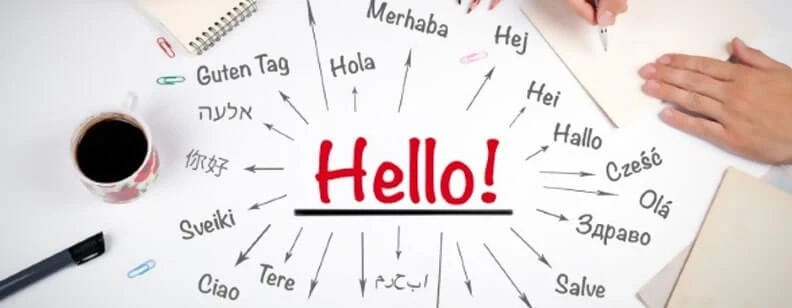Although the translation may not seem challenging at first glance, this is not always the case. Especially when the target languages are not closely related. rrIt is common to hear that "this expression or phrase does not exist" in one language. In this case, one has to come up with a parallel expression or phrase since direct translation is not possible. rrContinue reading to find out the top 8 reasons why translating from one language to the other can become difficult.r
Difficult vocabulary
rThere are so many which are literally hard to translate. This is mainly due to cultural context. For instance, the word “you” may seem simple to use. But in reality, it’s difficult when we consider its use in multiple languages. Speaking about you, the word has multiple variations in Russian. It depends upon the people involved, your situation, and the relationship between different individuals. This is why only getting
professional Russian translation services can solve your problem. Otherwise, you’ll have a hard time translating the ideas correctly.r
Use of slang
rLanguage translation becomes difficult when dealing with slang. It typically utilizes words in a context that’s different from traditional use. A person who has not grasped a language will easily get confused with slang and will be unable to translate the content accurately. rrFor instance, let’s consider the word “sick”. In English, it carries the meaning of having a mental or physical illness. But it also can mean “amazing”, “cool”, or “impressive”.rrNow MasterChef Australia is a competitive cooking reality show where judges and contestants often use the term that this dish is “sick”. Their attention is to say that it’s amazing. However, if we understand the word “sick” in its traditional context, we’ll take it negatively. So you basically get the idea of how slang can mistranslate the whole concept. r
Structure of the language
rRules and structures vary from language to language. As the sentence structure and rules become more intricate, the language translation becomes more challenging.rrThe job becomes extremely difficult when you're translating between two languages with completely different sentence structures. For example, if one language follows a subject-verb-object pattern (like English) and the other has a subject-object-verb structure (like Turkish). In such a case, if you’re translating from English to Turkish, it becomes necessary to rearrange, add, or remove certain words, only then your translation will make sense. But will you be successful? Not guaranteed unless you work with a native translator who can provide you with
Turkish translation services with utmost consideration and care. r
Sayings, Proverbs, and Expressions
rSayings, proverbs, and expressions make languages beautiful and rich. However, language translation becomes exceptionally challenging because of them. Simply because one can easily misinterpret them or skip them in the translation. rrFor example, if you’re translating some expressions in poetry or any other literature, you can only do it right when you capture the feelings and emotions attached to those expressions. Otherwise, the true meaning will get lost somewhere. Therefore, the right strategy is to get connected with professional translators who can offer accurate
literary translation services.r
When there’s no equivalent at all
rWhen a phrase or word is translated into another language, it is not always possible to find an exact match. This complicates language translation. Because the translator will either have to explain the concept or come up with the closest equivalent.rrThis is important because every field has some unique terminology and jargon. Say, one is translating academic documents then knowledge of specific terms and knowing their close equivalents becomes paramount. If you're working on
academic translations, it's essential to be familiar with specialized terminology. This pretty much explains the reason behind professional
education translation services being highly sought-after in the education sector. r
Use of two-word verbs
rIt can be difficult to translate two-word verbs. There are many verbs and prepositions which we often use together to create a specific meaning. Examples could be “sit down”, “put up”, “switch off”, and so on. rrAlthough translating two-word verbs can be challenging, it is neither required nor appropriate to separately translate the prepositions. The most important thing is to accurately convey the intended meaning in the language you want to target.r
Multiple meanings
rThis is another common difficulty called Polysemy. It involves many possible meanings for the same word or phrase. For example, “une feuille” means a leaf in French while it can also mean a sheet of paper. rrScale is another good example. In English, it can refer to a tool for weighing objects while in business, the same word means to grow. Similarly, it also refers to fish scales. For accurate translations, the translator must have an in-depth command of the language and multiple meanings of the words. Otherwise, things can become complex.r
Conclusion Remarks
rAlthough the process of language translation can be complex and tricky, your business doesn't need to suffer from such obstacles. Thanks to translation and interpretation services around the world that make it simple and easy. There are various online platforms that can give you an idea about these services so you can compare their pricing, visit their websites, and review client testimonials. Shortlist a few top providers and get quotes from them. Thus, by doing a little research, you can find the right partner and say goodbye to all such translation headaches.


